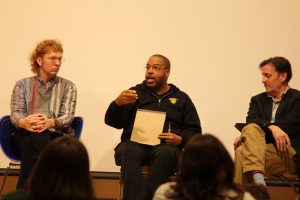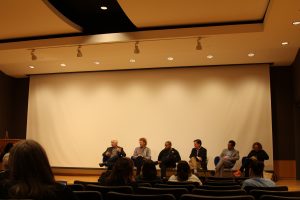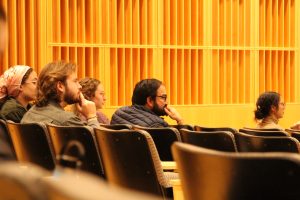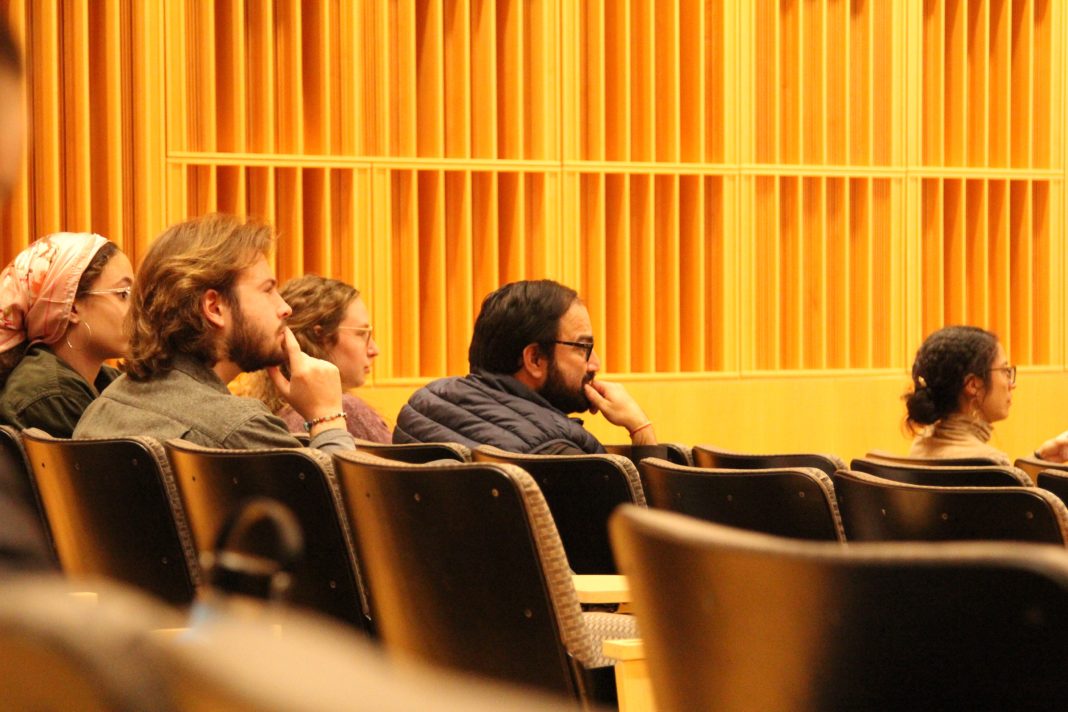“200 Meters,” the third MENA film in the series, was screened in the Peeler Auditorium on Wednesday, Feb. 21. Made by Palestinian director Ameen Nayfeh, it won the Audience Award at the Venice International Film Festival in 2020. The story follows a father, Mustafa, who lives on the Palestinian side of the border wall, trying to get to his family who lives on the Israeli side. In a time of emergency, Mustafa pays smugglers to illegally transport him and spends a day’s journey with a motley crew of people who bond through their shared struggles.
The setting oscillates between two West Bank villages, one controlled by Palestine and the other Israel, demarcated by a wall. Nayfeh uses the territories to reflect the conflict and turmoil that impacts people’s identities and sense of belonging. Throughout the film, tension and fear arise from Israel's heavy military presence and power within the Gaza Strip. This is pertinent to understanding the history behind the ongoing conflict in Palestine, which many activists are referring to as a genocide. AP news reports a death toll of over 30,000 Palestinian people and over 70,000 wounded since the most recent flare up of the ongoing conflict began on October 7. Films like “200 Meters” help subvert the popular, antagonistic narrative of Palestinians and humanize their experiences, which is important in the fight for a free Palestine.
The movie starts by establishing the family dynamics between Mustafa, his wife Salwa and their three children. Though they cannot be together all the time, since Mustafa’s permit to be in Israeli territory has expired and to get one is a long and complex process, the moments they spend as a family are full of joy and love. There is some bitterness about Mustafa’s physical and emotional absence, but he does his best to make it up with nightly phone calls and light shows from his terrace, visible from Salwa’s house just 200 meters away. The plot centers around Mustafa’s journey to a hospital in Salwa’s village because his son has met with an unfortunate accident. He hitches a ride with smugglers in the business of illegally transporting Palestinians without official identification across the border. Mustafa is joined by a variety of other people, including a Jewish German filmmaker, although her religious identity is unknown to viewers at the start.




The interactions between the various characters explore themes of cultural appropriation, fear and animosity cultivated by military oppression and the tie of identity to place during times of conflict. Although everyone’s reasons for getting across the border are different, they all carry the burden of their Palestinian identity with a combination of pride and caution. The Jewish German filmmaker, Anne, is constantly recording the journey, despite everyone being uneasy with her documentation of what is clearly illegal and dangerous. When the person she’s traveling with, Kifah - who needs to get to a cousin's wedding - jumps out of the van and takes down an Israeli flag from the side of the road, everyone first admonishes him and then her for recording it. While all the travelers are already on edge, and many arguments arise amidst the thick tension, Anne’s questioning and filming brings in an element of Western appropriation to the mix. She is safe as a Caucasian person, and is also half Israeli, so her fascination with the lives of the others in the vans borders on the fetishization of the turbulent lives of people in Asian and other countries through the Western gaze.
Ultimately, the group splits apart and we are left with Anne, Kifah, Mustafa and a young boy called Rami feigning nonchalance as they pretend to be tourists. Anne’s Israeli heritage is revealed as she speaks Hebrew with a soldier, and Kifah confesses his conflicted feelings for her. Rami is overcome with anxiety and has to be admitted to the hospital, where Mustafa holds his hand, perhaps imagining that Rami is his son. The heartbreaking moment represents the separation of so many families that has only amplified in the current state of occupation and bombing in Palestine. A sense of kindredness and community forms between all people facing displacement, loss, sickness, injury and starvation, and the lines between family, friend and stranger start to blur. In the end, Mustafa is able to see his son, but remains separated from his family by a wall, a war, and 200 meters.



